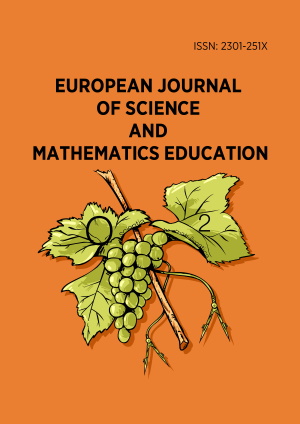Research Article
Fallacious argumentation in student reasoning: Are there benefits?
More Detail
1 Educational Studies, Seton Hall University, South Orange , USA2 Childhood Education, Mercy College, Dobbs Ferry, USA* Corresponding Author
European Journal of Science and Mathematics Education, 2(1), January 2014, 27-38, https://doi.org/10.30935/scimath/9398
OPEN ACCESS 2852 Views 1621 Downloads
ABSTRACT
This article reports on an analysis of episodes of invalid or controversial arguments that occurred while two different groups of students worked on similar fraction tasks and examine the role that these types of arguments played in the development of students' reasoning. One group consisted of suburban, middle-class, fourth graders who worked on these tasks during the regular school day. The other group was comprised of sixth-graders from an urban community working on similar tasks as part of an informal learning after-school project. The findings of this study indicate that allowing students to share and discuss incorrect arguments promoted rich mathematical discourse and argumentation. The invalid arguments triggered the use of varied reasoning by other students and cleared up previous [mis]understandings.
CITATION (APA)
Mueller, M., & Yankelewitz, D. (2014). Fallacious argumentation in student reasoning: Are there benefits?. European Journal of Science and Mathematics Education, 2(1), 27-38. https://doi.org/10.30935/scimath/9398


 The articles published in this journal are licensed under the CC-BY Creative Commons Attribution International License.
The articles published in this journal are licensed under the CC-BY Creative Commons Attribution International License.